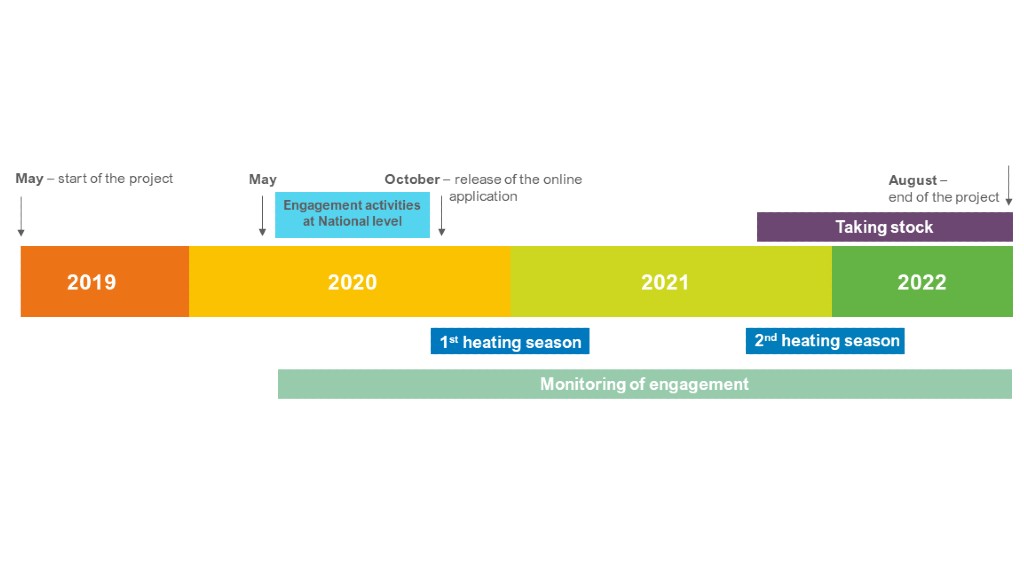After HARP kicked off in May 2019, the first meeting of the consortium took place in Lisbon that same month, and the project partners immediately started working on the first results. As a first step partners started to gather the evidence necessary to have a solid base for the development of the online application that consumers will use to label their installed appliances.
This included a consumer survey conducted in Germany, France, Italy, Spain and Portugal – the result of which helped us to identify what levies to use to motivate consumers to retrofit their heating systems (see our Consumer Behaviour Change Model). An analysis of the existing building and heating stock and an inventory of the market solutions, their potential and associated co-benefits was also completed.
One year after the start of the project, a solid base of evidence has been built, and the consortium is now deciding on the methodology to be used to label the installed heating solutions, based on the existing regulations and several national initiatives.
The online application, result of this preliminary work, will be available in October 2020. The consortium will promote the online application in the countries targeted by the project (Germany, France, Italy, Spain, and Portugal) over two heating seasons, in 2020 and 2021. With targeted activities and material our national partners will promote engagement at national level. In Italy, the first National Expert Forum has already taken place, bringing together professionals, consumers and other relevant stakeholders linked to the heating market.
The objective is to motivate 10 000 consumers to replace their inefficient heating system. A comprehensive evaluation of the success of these activities will be performed during the project and recommendations for the replication of the project will be developed, taking stock of the results.
About the project:
HARP (Heating Appliances Retrofit Planning) is a project funded by the EU Horizon 2020 programme aiming to raise consumer awareness on the inefficiency of their heating systems and to accompany them in adopting efficient alternatives.
